 As an upcoming actor you’ve probably heard about spotlight but what exactly is it? Established in 1927, Spotlight is a casting website in the UK and is used to cast a variety of projects. From smaller projects to famous TV shows and feature films, Spotlight is more or less used by everyone including some of the biggest casting directors as it is considered industry standard. New roles are posted on there everyday. While there are other casting websites on the market, Spotlight is definitely the most recognisable and has been for years. There are a few requirements that apply for actors but it is definitely worth joining if you are eligible. In order to become a spotlight member you need to have at least one featured role with an equity or equivalent union contract or two contracted professional performance credits. If you don’t have either of them but do have at least a year of full time professional performance training equivalent to an RQF level 5 or two years of part time training, including IPM Acting classes, you will also be eligible for a membership. If you don’t have any of the requirements the best thing to do is try and get some experience in the industry and there ways to do this, the biggest one being through networking and contacts. Spotlight allows actors to create a profile where they can post their headshots, showreels, credits, contact details, training and if they have representation. All this information is then available for casting directors and agents who are looking for actors to cast or represent. Being on spotlight provides many benefits. It allows casting directors and industry professionals to easily find actors which can lead to more opportunities and auditions. It also is a great platform for actors to network with each other and industry professionals such as directors and producers. Under 18s can get a spotlight membership, however, they must be signed with an agent to be eligible. Parents and guardians can not act as a child performer’s agent - the agent must be spotlight registered and experienced. Unlike Spotlight for over 18s, for young performers only the agent can see advertised roles and are the only who can put the young performer forward. A majority of agents require actors to have a spotlight page as it is the most efficient way to put clients forward for roles, however, if you don’t have representation you’re still able to use the site you’ll just be down as self-represented. This means that you will have to be proactive in promoting yourself and putting yourself forward for suitable roles. If you have representation, once you’ve got a role your agent will be the main point of contact for the casting director and will deal with contracts, however, self-represented you will be the main point of contact. If you are considering taking your acting career seriously, joining spotlight is definitely worth it. It provides a lot of brilliant opportunities for up-and-coming actors and is a great way to connect with others in the industry. Getting into character is crucial for artists to fully immerse themselves in a role. It allows them to deliver a more powerful and authentic performance that truly resonates with the audience. From understanding the character's background and motivations to embracing their emotions and physicality, it's all essential in creating a believable and captivating portrayal. By delving into the character's past, you can explore what drives their actions and understand how their journey unfolds. This deep understanding helps create performances that feel genuine and leave a lasting impact.
Here are some top tips on getting into character: 1. Do your research: Dive into your character's world. Read the script, study the time period, and understand the context. The more you know, the better you can embody the character. 2. Connect with their emotions: What do they feel? How do they express themselves? Tap into those emotions and let them guide your performance. 3. Find their physicality: How does your character move and carry themselves? Do they have any unique gestures or mannerisms? Explore these physical aspects to bring your character to life visually. 4. Experiment with voice and speech: Play around with your character's voice. Do they have a specific accent, tone, or way of speaking? Practice and refine it to make your character's voice distinct. 5. Practice improvisation: Try improvising as your character. This helps you understand how they would react and respond in different situations, making your performance more natural and spontaneous. 6. Seek feedback: Don't be afraid to ask for feedback from directors, fellow actors, or acting coaches. They can provide valuable insights and help you fine-tune your portrayal. 7. Stay in character: Even when you're not on stage or in front of the camera, try to stay in character. This helps you maintain the consistency and authenticity of your performance. 8. Try it in front of a camera: Even if it is just your phone this gives you a chance to watch it back and see if you believe the performance as well as showing others. By conducting thorough research, connecting with the character's emotions, exploring their physicality, refining voice and speech, practicing improvisation, seeking feedback, and maintaining consistency, actors can create captivating performances. It is a journey that requires dedication, skill, and a deep understanding of the character's motivations and background. So, embrace the process, immerse yourself in the role, and let your talent shine on the screen. Adapting from stage to screen is an exciting journey for actors of any calibre. On stage, performers use their voices and bodies to connect with the audience in a live setting. But when it comes to the screen, there are some key differences to consider.
First off, one major difference is the size of your performance. On stage, you have to project your voice and movements to reach the back of the theatre. But on screen, the camera captures every subtle expression and whisper. It's all about finding that balance and adjusting your performance accordingly. Additionally, the camera becomes your closest confidant on screen. It captures the smallest nuances of your performance, so it's important to be aware of your facial expressions, body language, and eye contact. Remember, the camera can often pick up the tiniest details that the audience might miss in a live performance, you are no longer filling a room - just a frame. Another thing to keep in mind is the technical aspect of filming. Unlike the stage, where you have one continuous performance, on screen, scenes are often shot out of order. This means you need to maintain consistency in your character's emotions and actions, even if the scenes are filmed weeks apart. It can be a challenge, but it's also an opportunity to explore different layers of your character, getting to know a script inside and out is a great way of improving your skills, this is because you will gain a complete understanding of it and be able to perform scenes more comfortably if it is shooting non-linear. Lastly, working with a director is crucial in the world of screen acting. Unlike the stage, where you have more freedom to interpret your character, on screen, the director's vision takes precedence. Be open to their guidance and collaborate to bring your character to life in the best way possible. Adapting from stage to screen can be an exciting and challenging transition for actors. It's all about embracing the differences, honing your skills, and adjusting your performance to fit the medium. If you are wondering if the move is possible it most certainly is! Many great screen actors started their career on stage such as Meryl Streep, Hugh Jackman and Morgan Freeman. Monologues can be used to see a performer's acting ability, imagination, and understanding of a project's overarching narrative.
But what is a monologue? A monologues is a long speech performed by one character in a screen or stage production. They can help you further your skills, confidence and performance. They are often used for auditions and self tapes, therefore it is important to ensure you are confident and calm when performing. Here are some essential tips to help you master your monologue!
Memorising a monologue is also essential for any kind of audition, although mistakes can be looked past - it is important to always be as prepared as possible. Here are some more top tips for memorising your monologues!
Using all these you will - in no time - become a monologue master! 6 brilliant podcasts for actors to get acting tips, industry news or practical performing advice. Listening to podcasts has fast become a popular pastime. They’re engaging, informative, and there are plenty to choose from. It’s estimated that there are now around 5 million podcasts worldwide, with 70 million episodes between them. 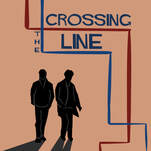 1) Crossing the Line This podcast takes you behind the scenes of popular productions by interviewing key people who worked on them – actors, directors, writers, casting directors, make-up and SFX artists, agents, and more. It’s a great way to gain insight into other roles in the performing arts industry and develop an understanding of what goes into making your favourite films and TV shows.  2) The Empire Film Podcast Anyone who claims to love film will know Empire. What you may not know is that they also have a weekly podcast – and it’s just as fun and informative as their web and magazine content. With highly desirable A-list guests, this is an excellent podcast for your regular fix of movie news and nonsense.  3) In the Room For any actor who’s ever wondered, “How do I get in the room?”, this podcast helps you find the answer. Hosts Matthew Philip Harris and Christian Lee Smith are both actors themselves, and eager to discover their own answers alongside their listeners. With discussions and advice about industry essentials like self-tapes and showreels, and interviews with casting directors, agents, producers and more, there’s plenty to learn from the hosts.  4) Little Gold Men We all wonder how the other half live. This is the acting equivalent of that – a look into the award shows, red carpet premieres, whisper campaigns, and more that go on in glamorous Hollywood. A podcast from Vanity Fair, it features conversations about the best of television and films, special guest appearances, and a deep dive into the Oscar’s history.  5) The Proper Class Podcast Actor Laura Checkley and theatre director, Hannah Chissick, host this podcast, in which they discuss all things acting with each other and their guests. All of this is centred around being from a working-class background – providing an interesting perspective when hearing about Laura and Hannah’s journey and rise to where they are now. We all know performing arts hasn’t always been the most inclusive of industries, so it’s uplifting to hear the experiences of those who succeeded despite this.  6) Two Actors Walk into a Bar There are plenty of jokes in this podcast, as the title would imply. Actors Scarlett Briant and David McCulloch discuss and laugh about their frustrating, noteworthy and ridiculous experiences in the performing arts industry and their daily lives. A great opportunity to hear a fellow actor vent and realise it isn’t just you who feels that way about certain things. The casting directors of ‘Breaking Bad’, ‘The Walking Dead’ and ‘Captain America’ reveal common mistakes that actors make in showreels, and what you should include in yours! If done well, a showreel is your key to getting more acting work. It’s the trailer that showcases you – and your talent – and can help make a first impression on casting directors. If a picture is worth a thousand words, just imagine how much your acting showreel says about you. A bad showreel, however, can have the opposite effect, which is why understanding what casting professionals are looking for in a showreel is vital – as is avoiding the common mistakes that actors make. What is a showreel in acting? An acting showreel is video material of a performer acting on camera, so that casting professionals can get a better idea of who they are as an actor and what they can do. As Thom Hammond of Hammond Cox Casting says, “It’s not about having a great film showreel [or] lots of television drama. [...] It’s just having something that we can see of you on camera.” It’s important to remember that an acting showreel should be simple and practical. It isn’t a short film – it doesn’t need to be beautiful or have music. Thom stresses that it just needs to be, “Some quick, accurate video.” How long should an acting showreel be? It’s recommended that you don’t have too much footage on your showreel. Frank Moiselle CSA advises that, “Two minutes is long enough, three minutes is plenty.” Casting professionals are busy people and won’t have time to sit through showreels that are much longer than this. What scenes should you include in a showreel? A strong opening Not only will this ensure that your best performance is seen, but it will also make the casting director want to watch the rest of your showreel, too. Give casting directors what they want to see and dazzle them with your acting talent from the start. Kelly Valentine Hendry CDG says, “I don't like having to skip through three or four minutes in order to find somebody's best work.” Include recent acting material Lucinda Syson CDG says, “It’s good to have as much material of recent times [as possible], don’t make it all old material.” Footage from productions you’ve recently worked on will show casting professionals that you’re currently working and in demand. Your best acting work This may seem obvious, but a showreel shouldn’t be a compilation of every piece of your acting work. It’s a highlight reel of your best performances; an advert with the aim of selling yourself as an actor to the casting professional watching. Rachel Desmarest stresses, “Don’t put all the stuff you’ve ever done into one showreel.” Your aim, Priscilla John CDG reminds us, is to include, “Something that makes [us] want to see more.” Similarly, April Webster CSA urges actors to only include, “Good material, the best of, even if it’s one short scene.” What shouldn’t you include in a showreel?
Don’t use montages and music The point of your showreel is to showcase your acting skills – not what you can do with editing software on a computer. So, avoid including a montage in your acting showreel. As Thom Hammond says, “Montages are all about editors, good showreels are all about actors.” Make sure it’s clear who you are in a scene You should make sure you’re only including scenes that focus on you and the character you’re playing in your showreel. With only a small window to catch a casting professional’s attention, you don’t want them to spend it wondering where you are in a busy scene. The important thing, as Debbie McWilliams CDG says, is that you, “Don’t confuse [your showreel] with a scene with lots of other people.” Don’t include scenes that don’t show you at your best If you feel like your acting showreel isn’t long enough, padding it out with footage where you’re not at your best won’t help. Sharon Bialy CSA says, “If you don’t have two or three scenes, one good one is enough, and that’s really all you need.” Similarly, Luci Lenox advises, “If you haven't got good material, never show anything that's not going to show you in a favourable light.” If you’re a performer with only a few usable scenes, don’t use them just for the sake of having a showreel. If you’re selling yourself short, it’s better not to have one at all. Copyright Vanity Fair Top tips on how to learn an accent! There’s no quick way to learn an accent. Like any skill, it’s developed through training, practice and feedback, but once perfected, it will open up a whole new world for your voice work. Commercials, video games, audio-books, narration – all of these opportunities are more likely to come to a voice over artist who can vary the way their voice sounds. Choose an Accent Before you start, you need to decide which accent you want to learn. With so many varying accents to choose from, it can be overwhelming, but think about which accent will serve you best – as well as which is most suitable for the type of voice work you’re hoping to get. It may also help to choose an accent that you’re already slightly familiar with, be it through exposure to TV shows, films or the people around you. Listen to the Accent Listening is the key to mimicry. You should listen to an accent as if it was a piece of music, the music of the area. The quickest way to get into the sound of an accent is to pay attention to the cultural stereotypes and icons of the area. Also pay attention to things like whether the area is urban or rural, and the physicality of the people who live there, etc. Gaining this understanding of how the accent has been shaped should help you replicate it accurately. You should also take note of things like vowel sounds, facial expressions, mouth movement, tongue positions, and the stress and rhythm that native speakers of the accent put into their speech patterns. These are all attributes that shape an accent, and copying them as closely as you can, will help you get the accent spot on. Practise and Playback The way to develop any skill is with practice. Accents are no different. Practice it as much as possible and make sure you’re recording and listening to yourself back. When you hear yourself trying to do the accent, it’ll be easier for you to identify what bits need more work. When you finally have that accent perfected, you’ll be able to hear it. If certain words are tripping you up, write them down phonetically as they’d sound in that accent. This will help you sound them out and understand their vocal shape. Be Patient
It takes time to learn an accent, so it’s important to be persistent and not give up if you’re still struggling after a while. Keep listening, keep practising, and eventually you’ll be able to do it. You’re not the only actor trying to learn a new accent, so look for fellow actors online or in classes who are at the same stage as you. Perhaps you could form an accent practice group with them to get feedback and share tips? Or, if you’re struggling, or really need a certain accent for an upcoming audition, you might consider working with a vocal coach or joining an accent workshop or masterclass. Cred. TIFFANY TAYLOR The Hollywood Reporter
Understanding the SAG-AFTRA strike and its impact on UK performers in the UK If you're an actor or performer in the entertainment industry, you may have heard about the SAG-AFTRA industrial action. We’ll break down what the strike means, how it affects performers, and what actions you can take. What is the SAG-AFTRA industrial action? It's a work stoppage initiated by the Screen Actors Guild-American Federation of Television and Radio Artists (SAG-AFTRA). This action comes as a result of ongoing contract negotiations with the Association of Motion Pictures and Television Producers (AMPTP) which represent corporations that create streaming/film content. That includes companies like Netflix, Amazon and traditional studios. Why is the strike happening? SAG-AFTRA is negotiating with AMPTP about fair wages, improved working conditions, protection of performers' likenesses (including the fight against a requirement for performers' consent for the creation and use of digital replicas, or for digital alterations of a performance), and better residual payments for performers in film, television, and digital media. You can read more about the strike on SAG-AFTRA’s website. https://www.sagaftrastrike.org/ How does the strike affect UK performers? You may have noticed the lack of projects and opportunities due to the affects of both the actor and writer strikes. If you’re a performer who has Equity membership but you’re not a member of SAG-AFTRA, the advice is to continue to work when you can. If you're involved in co-productions or working with SAG-AFTRA members, the strike can potentially disrupt or delay productions. It's important to stay informed and be prepared for any changes that may arise. Should I/can I participate in the strike? If you’re an Equity member, their UK lawyers have advised that whilst the strike is lawful in the US, it’s not legal in the UK. Therefore any performer joining a strike or who refuses to cross a picket line in the UK will have no protection against being dismissed or sued by the producer or engager for breach of contracts. How long will the SAG-AFTRA industrial action last? Unfortunately, the duration remains uncertain, as it depends on the progress made in ongoing negotiations. It could be resolved relatively quickly or extend over a longer period. We’ll keep this page updated as we find out more. During this period of industrial action, it's crucial to stay informed, support your fellow performers, and seek guidance when needed. Acting is comprised of physical, vocal, mental, and emotional work that requires preparation for you to do the best performance possible. Your body and mind need to be warmed up for you to deliver your best work to the camera. Why are warmups important for actors? A good warmup will help you relax, get rid of any anxieties, and make you feel looser in preparation for the physical demands of a performance. Warmups are an essential part of any pre-performance routine. 7 Physical Warmups Warmup routines don’t need to take up lots of time, and they can be done both alone and in a group. 1. Work your neck: Roll your neck around forwards, side to side, then backwards. Roll it around in one direction, then the other. 2. Shoulders: Shrug your shoulders up, down, then roll them forwards and backwards. 3. Circle your arms: Swing your arms in a circle in one direction, then the other, then in opposite directions. 4. Stretch your ribs: Raise your arms above your head, then lean to one side, feel the tension release on your ribcage. Hold this position for a moment, then return to the upright position and repeat on the other side. 5. Breathwork: Stand completely straight, as if a string is pulling at the very top of your head. Now breathe in deeply and slowly through your nose, then exhale slowly through your mouth. Repeat this process a few times to slow your heart rate down and relax. 6. Folds: Bend forward at the waist, dropping your head with your arms reaching downwards. Hold this position for 10 seconds. Then come all the way back up into a slight backward bend, holding for another 10 seconds. Repeat this process a few times until you feel your posture has improved, and you feel a little more relaxed. 7. Shake everything out: Start out by shaking your hands, then bring the shake up into your arms, then into your entire body. This should release any lingering tension you might have. 3 Facial Warmups Your facial expressions are key to a good performance, especially when filming a close-up shot. Warming up and relaxing your facial muscles will allow your face to be more expressive. 1. Massage your face: You should begin your facial warmups by massaging your face in slow, circular motions to loosen the muscles around your mouth, eyes, and forehead. 2. Use the “lion/mouse” technique: Yes, it sounds strange, but trust the process. Stand in front of a mirror and stretch all your facial muscles. Start by opening your mouth wide, like a lion roaring. Then scrunch your face into a meek, small expression – like a mouse. Switch back and forth between these two positions a few times. 3. Stretch your tongue: Stick your tongue out, then pull it down as far as you can, the up, now move it side to side. This will help you move your mouth with more fluidity and to enunciate and articulate your words. 6 Vocal Warmups
We have to make sure that you're not slipping up on your lines. Clear diction is imperative for an actor. 1. The “Hum”: Exhale slowly, humming until you have let all of your breath out. Repeat this exercise around five times. 2. The “Ha”: Stand up straight and place your hand on your belly. Breathe in while pushing your stomach outward, this lets you breathe from your diaphragm. Breathe out slowly whilst saying “ha ha ha”. Push your stomach in with every syllable. Repeat this process a few times. 3. Lip trills and flutters: To do these, you should roll your tongue on the roof of your mouth to make a “trr” or “rr” sound. 4. Descending nasal consonants: Say the word “onion”, but stretch the “ny” sound and make your voice lower every time you do so. 5. Tongue twisters: Memorise a few tongue twisters, such as the classic “red lorry yellow lorry” or a personal favourite “unique New York” and repeat them to loosen up your mouth. 6. Yawn and sigh: Open your mouth as if to yawn and let yourself sigh loudly from the top of your vocal register down to its lowest note. A headshot is one of the first impressions you will be making to a casting director, producer or anybody involved in the casting process. This is just one of the reasons why it is so vital to ensure it is done correctly. Why use a professional headshot photographer?
Headshot Preparation When preparing for your headshot session, there are a few things to bear in mind and come prepared with. It is important to know and learn more about your casting type. Your casting type is made up of factors including your age, gender, ethnicity, personality and more. These all contribute to which roles suit you and fit well for you. Appearance factors also contribute to the headshot you are creating. Your haircut needs to be styled correctly as this can alter your look drastically. A haircut frames the face and will change a look, such as if you are having it tied back. Make sure you have your hair styled in a way that suits you and is accurate to your everyday look. Makeup can also do this and may take away your natural look that casting directors are often looking for. Make sure makeup is applied to enhance your natural features, rather than alter it. When choosing what clothes to wear, it is important to think what compliments you. Make sure to consider skin tone, eye colour and hair colour. It is always a good idea to bring a few different outfits, therefore you can mix up styles such as necklines and materials etc. It’s also recommended to wear plain block colour tops and nothing with logos. Throughout the session
|
AuthorCastings, Industry News, Job Opportunities, Careers Advise and much more. Archives
February 2024
Categories
All
|
Contact Us |


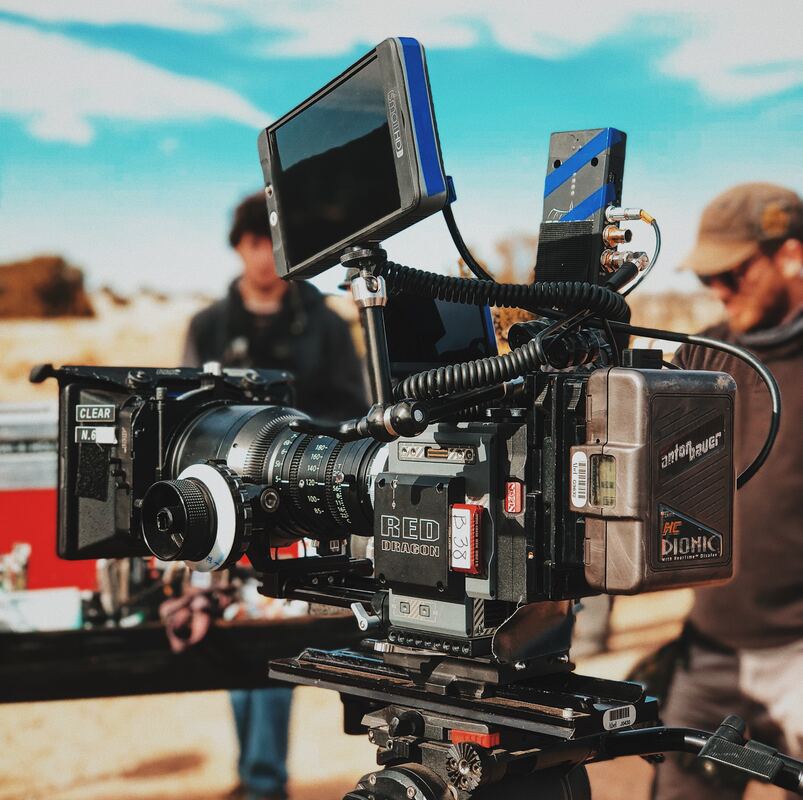
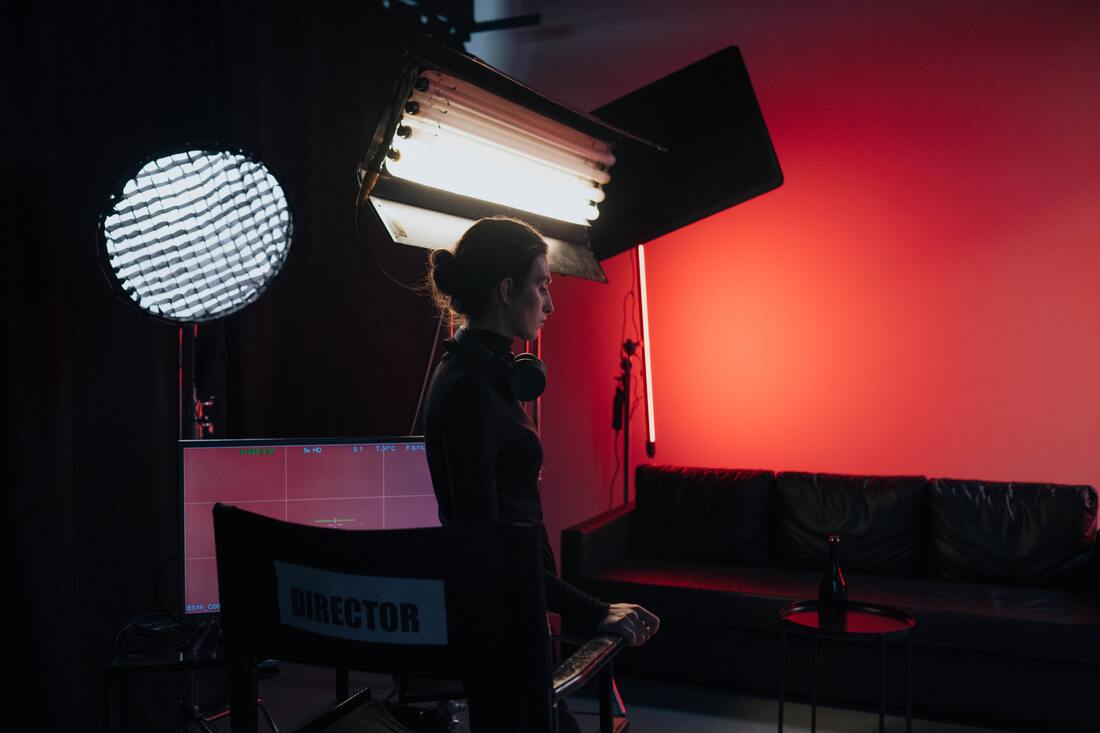

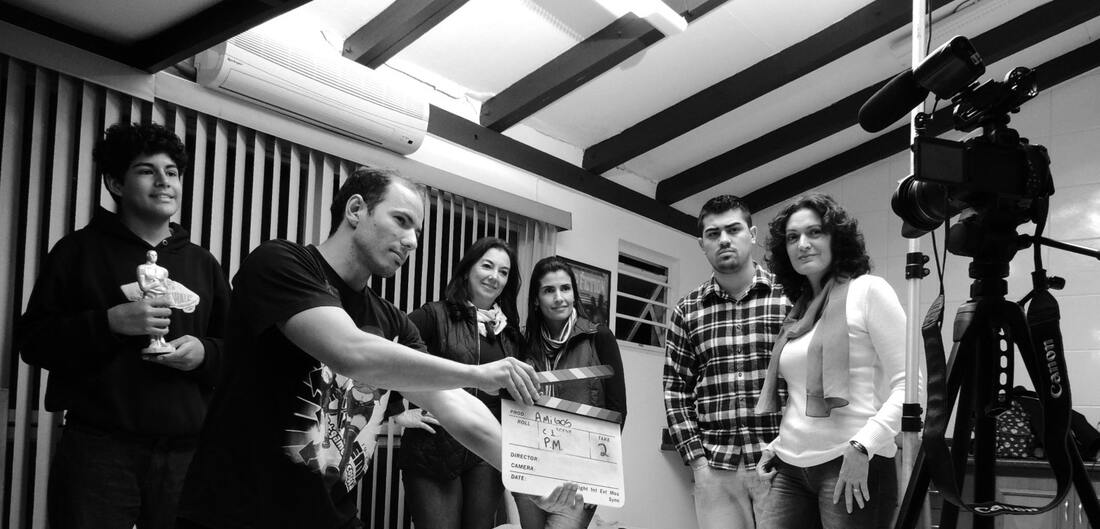





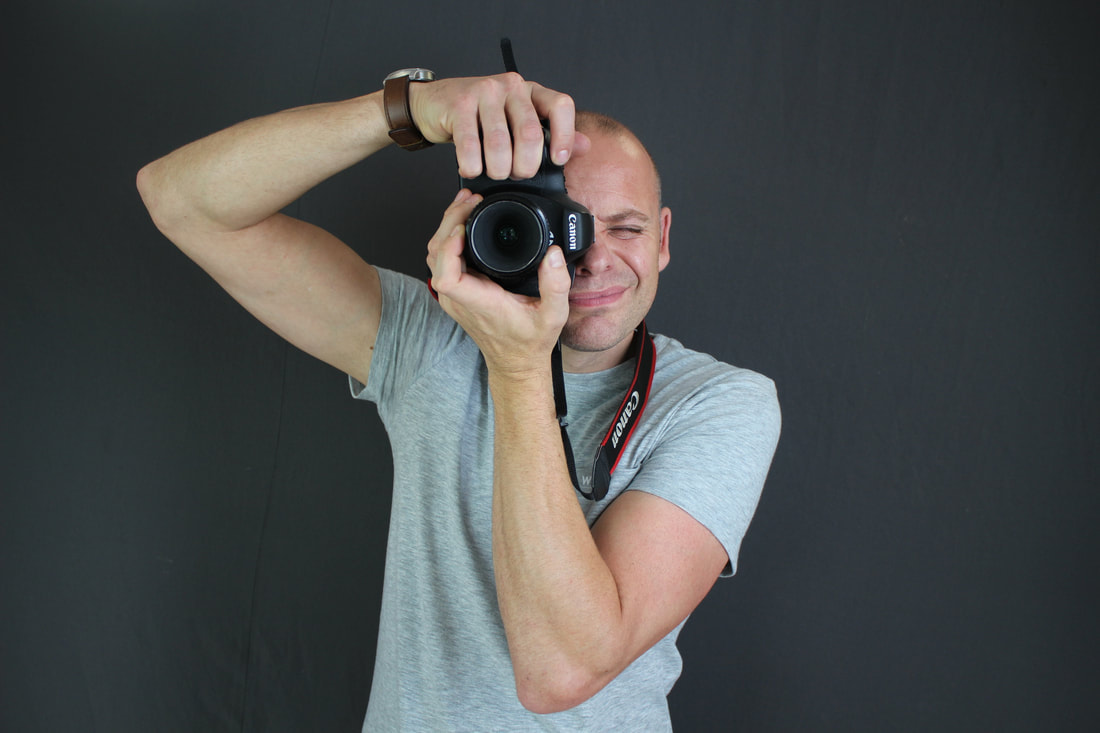
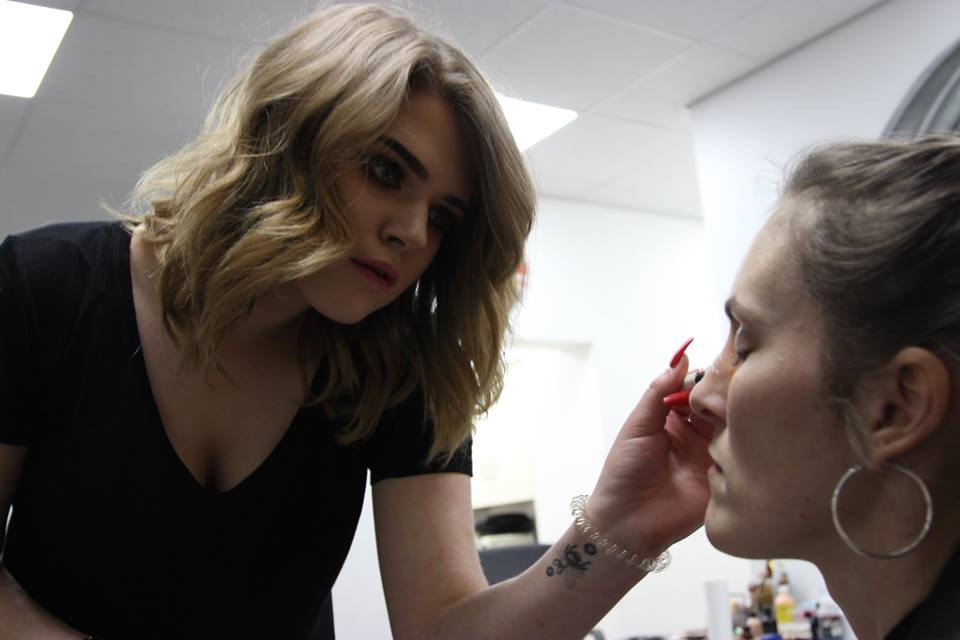
 RSS Feed
RSS Feed
